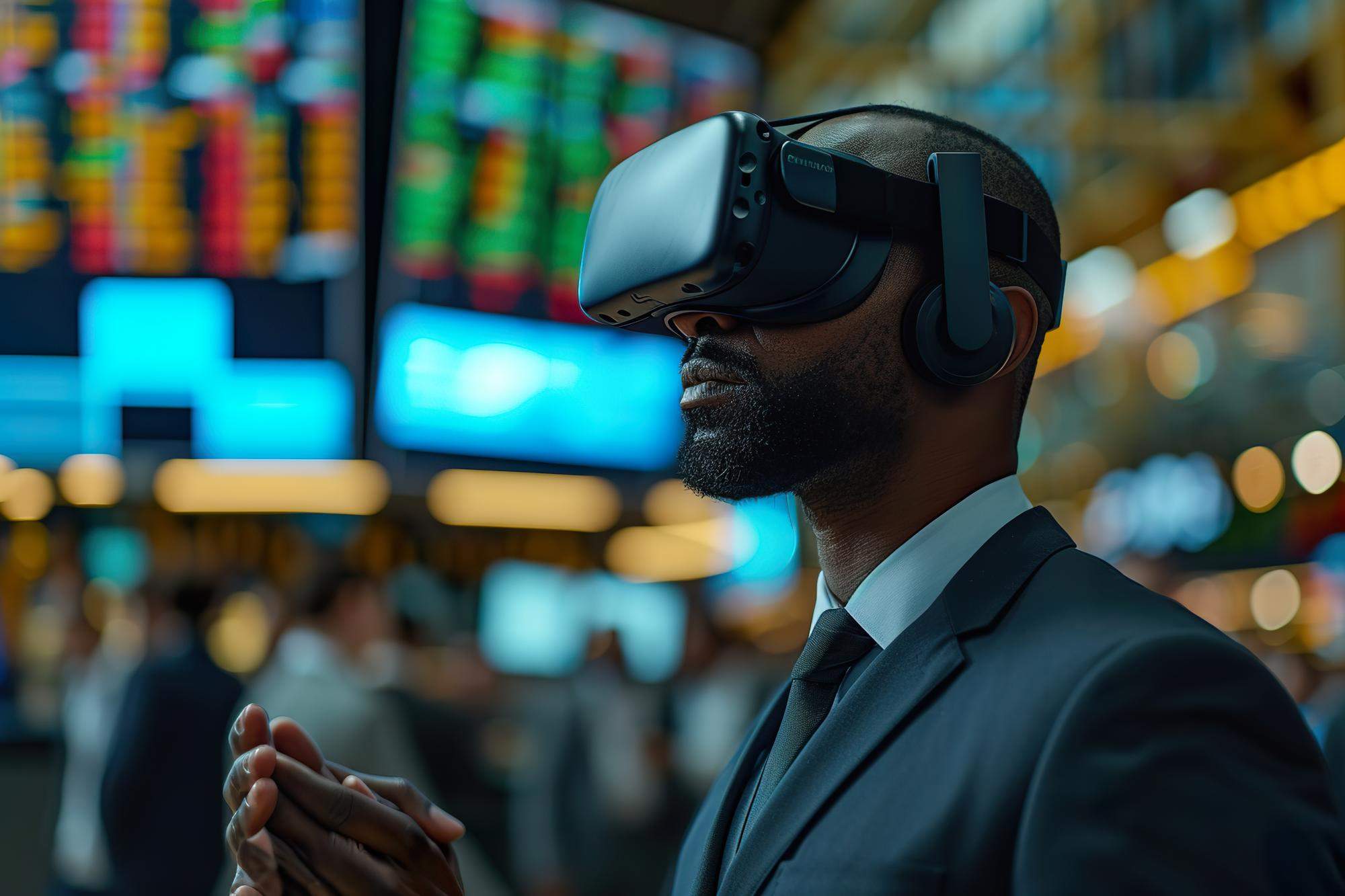Absolutely, here's a detailed breakdown of the third article:
Introduction:
The metaverse, a virtual shared space created by the convergence of virtual reality (VR), augmented reality (AR), and the internet, is rapidly evolving into a dynamic ecosystem with profound implications for entertainment, commerce, and social interaction. As technological advancements push the boundaries of immersive digital experiences, venture capitalists are presented with unique investment opportunities to participate in the growth of virtual worlds and their associated economies. Components of the Metaverse:
- Virtual Reality (VR): Delve into the immersive virtual environments enabled by VR technology, where users can interact with digital content and each other in simulated 3D worlds. Discuss the applications of VR across gaming, entertainment, education, training, and virtual meetings, as well as the hardware and software innovations driving VR adoption and accessibility.
- Augmented Reality (AR): Explore the integration of digital content into the real world through AR overlays, enhancing physical environments with interactive digital elements and information. Highlight AR's potential in areas such as retail, advertising, navigation, industrial maintenance, and experiential marketing, as well as the development of AR-enabled devices and platforms.
- Virtual Economies: Analyze the emergence of virtual economies within the metaverse, where users can buy, sell, and trade digital assets, services, and experiences. Discuss the role of blockchain technology, non-fungible tokens (NFTs), and decentralized finance (DeFi) in enabling digital ownership, scarcity, interoperability, and monetization in virtual worlds. Investment Considerations:
- Infrastructure: Identify investment opportunities in companies developing the foundational infrastructure for the metaverse, including VR/AR hardware manufacturers, software development platforms, content creation tools, and network infrastructure providers. Assess the scalability, interoperability, and technological advancements driving innovation in the metaverse ecosystem.
- Content Creation: Discuss the importance of investing in content creators and developers producing immersive experiences, games, applications, and digital assets for the metaverse. Evaluate the market potential, user engagement, and monetization strategies of content-driven startups, as well as their contributions to shaping the cultural and creative landscape of virtual worlds.
- Monetization Models: Explore different monetization models within the metaverse, including subscription-based services, in-app purchases, advertising, virtual goods sales, virtual real estate transactions, and blockchain-based micropayments. Consider the challenges and opportunities associated with monetizing digital experiences and assets in decentralized and creator-driven ecosystems. Risk Mitigation:
- Technological Challenges: Address the technological barriers and limitations facing the widespread adoption of the metaverse, such as hardware constraints, content fragmentation, user experience optimization, latency issues, and data privacy concerns. Discuss the importance of investing in solutions that enhance user immersion, comfort, accessibility, and safety in virtual environments.
- Regulatory Uncertainty: Consider the regulatory challenges and legal implications surrounding virtual currencies, digital ownership rights, intellectual property protection, consumer protection, and virtual property taxation in the metaverse. Evaluate the regulatory frameworks and policy developments shaping the regulatory landscape for virtual worlds and their impact on investment strategies. Early Success Stories and Case Studies:
- Roblox: Explore how Roblox created a thriving virtual ecosystem for user-generated games, experiences, and economies, attracting millions of players and developers worldwide. Discuss Roblox's business model, platform economics, developer ecosystem, virtual currency economy, and community-driven content moderation, as well as its implications for the future of gaming and social entertainment.
- Decentraland: Examine Decentraland's blockchain-based virtual reality platform, where users can buy, sell, and develop on virtual land parcels using the Ethereum blockchain. Discuss Decentraland's decentralized governance model, digital ownership rights, virtual real estate marketplaces, user-generated content, and monetization opportunities, as well as its potential as a pioneer in the decentralized metaverse space. Future Prospects and Trends:
- Convergence with Web3: Predict the convergence of the metaverse with Web3 technologies such as blockchain, decentralized finance (DeFi), and decentralized autonomous organizations (DAOs), enabling new forms of digital ownership, governance, and monetization in virtual worlds. Explore the potential for interoperability, composability, and decentralized finance integration to drive innovation and value creation in the metaverse ecosystem.
- Social Impact: Explore the potential social impact of the metaverse on human interaction, education, creativity, economic opportunity, and cultural expression, bridging geographical divides and fostering global communities. Discuss the implications for inclusivity, diversity, accessibility, and digital literacy in virtual environments, as well as the role of virtual worlds in addressing real-world challenges and advancing social change. By providing detailed insights into the opportunities and challenges of navigating the metaverse, this article aims to empower venture capitalists to make informed investment decisions and seize the potential of virtual worlds to reshape the future of entertainment, commerce, and social interaction.
